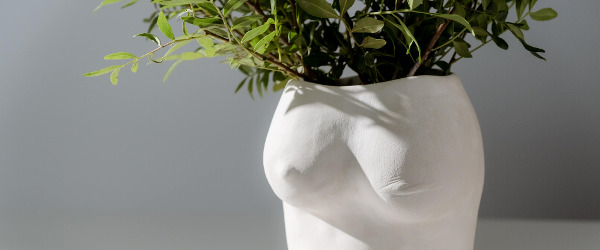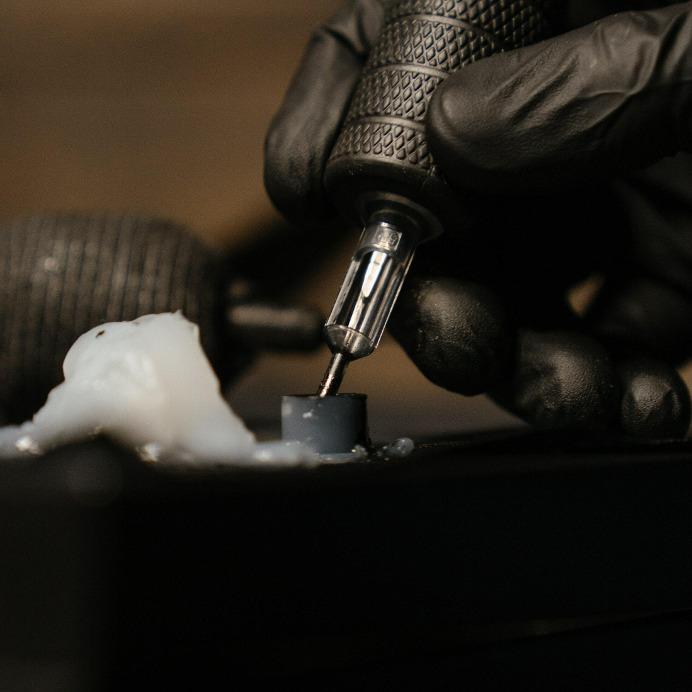By Dr. Alexandra Ginty
Fourteen years ago, I got the news that I had cancer. It was in both breasts. My colleagues were there for me all the way. Then, after nine months, my treatment ended, and I went back to work as a family doctor, but things were different. I was fragile. I had a new body. I was living with a newly diagnosed BRCA gene mutation that put me at high risk of breast and ovarian cancer. I required a prophylactic hysterectomy and breast reconstruction, making choices that would impact me and my family. The psychological impact was massive. I was exhausted, and my brain was never the same again. I was changed by art therapy; making art expressed my hurt and isolation. Art was healing, creative and calming. I could go to a place where time stood still.
Then, I met artists of another kind when assisting in the operating room. Creativity was our connection. A reconstructive plastic surgeon and a breast surgeon who were magicians with skin but there was something missing: an areola. High quality restorative areola tattooing was for those who could afford it; there was a medical billing code associated with it. This was a financial inequity engrained in me as a gap in care from work as a Regional Lead at Cancer Care Ontario (CCO), a part of Ontario Health. I knew I could make art, but to find excellent tattoo training felt way out of my comfort zone. Reaching high academics in medicine often makes us afraid or uncomfortable to learn a completely new skill in our field, where we are the learner in a new hierarchy which may bring judgement.
The world of tattoo artists is very different to medicine. No formal certification or association, no documentation; I was the first. I was an outcast with deepest intellectual humility which would be put to the test. Many of the tattoo artists openly expressed their trauma. Their body was their canvas. Maybe our worlds of skin as a canvas were closer than we thought, united in healing. Restorative areola tattooing was not only a way for the eye to no longer see scars, but for intimacy to make its way back. It was also a call to power for those taking back their lives after cancer.
Weekends, nights, and vacations, I was immersed in apprenticing from world masters in restorative areola tattooing until I graduated from silicone models to skin. I dreamed of seamless restoration after breast cancer, where patients could be assured of excellent care with financial equity in the hospital. Trundling my silicone models and glam suitcase to the department heads, I won them over. The Restore-me Clinic was born in the outpatient department of the hospital. I could talk genuinely to patients after 33 years of family medicine. They came for an areola tattoo, but it was so much more than that; I knew the trauma, I was at their surgery, I could visualize the painting I would ink onto the new canvas of a breast mound.
Tattooing is like painting, using different sizes of needles for different parts of the tattoo. Curved mags represent your flat brushes and round shaders, your round brushes, all finished by the fine lines and dots of white as we do in traditional art. Each person is different in their journey of complications, scarring, infection history, radiation, and support. There lies the psychological art and compassion of medicine. There is method to the areola, there is technique to the tattooing, but individualizing our Picassos onto skin is our art. It’s a place where we are both present for two hours of procedure, topical gel anesthetic leaving them comfortable to unravel their history in safe, psychotherapeutic, and confidential hands.
Dr. Alexandra Ginty, MD CCFP(EM) FCFP is a Regional Primary Care Lead CCO, family physician, and restorative tattooist at www.restoremeabc.com in Oakville, ON.
To see examples of her work, click here.








